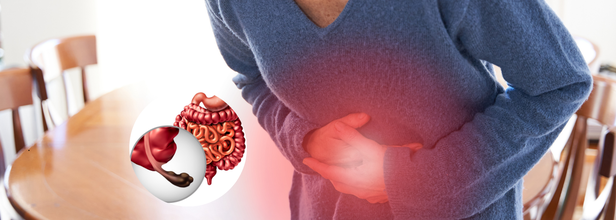- Health Conditions A-Z
- Health & Wellness
- Nutrition
- Fitness
- Health News
- Ayurveda
- Videos
- Medicine A-Z
- Parenting
- Web Stories
'I Felt Burning Sensation All Over My Skin', Woman Shares Details Of How Black Mold Affected Her Health – 5 Signs To Watch For

(Credit-Canva)
Home health is an important aspect of healthy living, right alongside healthy eating, and fitness etc. You may have hidden illnesses lurking around the corners of your home, these may seem harmless, but their effect is immediate and intense at times. One such danger that your home may be carrying is black mold. Black mold is a type of fungus that can trigger your immune system. On a milder side, it can cause sneezing, coughing, eye irritation and congestion in your airways. On the other hand, it can worsen asthma symptoms, and black mold allergies cannot be cured, however the symptoms can be treated.
Dealing with mold inside a home is unpleasant, as it can appear in various locations such as walls and ceilings. Black mold is a type of microscopic fungus that has a dark green or black appearance and can have negative consequences for one's health. Autumn Clayman claimed to have experienced several physical symptoms due to black mold after living in an apartment with it. She detailed these experiences in a video shared on TikTok.
Burning Sensations on Skin
Autumn described her first symptom as a burning feeling all over her skin, particularly on her face and neck. She stated that upon entering her apartment, her neck and face would immediately feel like they were burning.
In her TikTok post, she included a picture showing red marks resembling burns on her lower face near her jawline and on her neck. She added that this burning sensation started "immediately" after she entered her apartment and gradually worsened over time.
The Centers of Disease Control and Prevention (CDC) explains that black mold allergy can cause itchiness and redness in eyes and skin
Development of Eczema
Autumn developed eczema, which initially appeared as a "little speck" on her neck before quickly spreading across her body, including her arms and legs. She noticed small eczema "bumps" all over her body that would then group together into clusters.
In a 2016 study published in Allergy and Asthma Proceedings, researchers aimed to find out the effects of ethnicity and environmental exposure on eczema. They found that factors inside the home, like mold, water damage, or using a humidifier, increased the risk of eczema in non-Hispanic white children even if their parents didn't have allergies.
Allergies and Congestion
Autumn also reported feeling more congested than ever before. Although she had previous sinus issues, she stated that she had difficulty breathing most of the time while inside her apartment.
The Cleveland Clinic explains that exposure to black mold can trigger shortness of breath, nasal congestion etc.
Irritation of the Eyes
The fourth symptom Autumn attributed to black mold exposure was burning, itchy eyes. She claimed that her eyes were constantly irritated.
Extreme Fatigue
Autumn shared that despite getting sufficient sleep, she constantly felt exhausted and tired. She also recalled often feeling "depressed" and "drained," but initially thought this was just due to stress.
WebMD explains that exposure to black mold can not only give you joint and muscle pain, headaches, night sweats, as well as the tiredness even after resting.
After getting her apartment completely checked, she concluded that her apartment was the cause of her health problems because she had "never experienced health issues like this before," her stress levels were not unusually high, and she had "never dealt with eczema before."
How Does Black Mold Develop?
Mould and dampness are caused by excessive moisture. Therefore, if these issues are present, it is advised to identify the source of the excess moisture in the home to facilitate repairs or take steps to reduce humidity. NHS Inform advises that while a professional may be needed for extensive mold removal, small amounts might be removable by the individual.
76% Of Stomach Cancer Cases Are Linked to This Common Infection, But Not Many Know About It

Credits: Canva
A common stomach bug, Helicobacter pylori (H. pylori), could be responsible for millions of preventable cancer cases in the coming years, top researchers have warned.
Scientists from the International Agency for Research on Cancer (IARC), part of the World Health Organization (WHO), estimate that H. pylori infection causes 76% of all stomach cancer cases globally. Despite its serious implications, the infection is often silent, producing no noticeable symptoms beyond common digestive complaints.
No Obvious Signs Until It Is Too Late
The bacteria, which lives in the lining of the stomach, is usually acquired through contaminated food, water, or close contact with infected individuals. It causes tissue damage over time that can eventually lead to stomach cancer.
What makes it dangerous is that most people don't realize they're infected. “The vast majority—between 80 to 90 per cent—of infected individuals show no symptoms,” the researchers noted. In some cases, H. pylori may cause painful stomach ulcers, which is when it’s typically detected.
Symptoms of stomach cancer are often subtle in the beginning:
- persistent indigestion
- bloating
- heartburn
- difficulty swallowing
- feeling full quickly
- unexplained weight loss
- fatigue
These can easily be mistaken for common gastrointestinal issues, which delays diagnosis and treatment.
Screening could save lives
The IARC team is now calling for more widespread screening for H. pylori, using simple blood, breath or stool tests. Writing in the journal Nature Medicine, they warn that if current trends continue unchecked, nearly 12 million people born between 2008 and 2017 will go on to develop stomach cancer due to the bacteria.
“We found that about three-quarters of all stomach cancer cases globally could be prevented with proper screening and treatment,” said Dr Jin Young Park, lead author of the study and head of IARC’s gastric cancer prevention programme. “It is essential that health authorities make gastric cancer prevention a priority and accelerate efforts to control it.”
Asia Is Most Affected, But The Risk Is Global
While the highest number of predicted cases is expected in Asia, around 2 million are projected to develop in the Americas and 1.2 million in Europe.
In the UK, data from Cancer Research UK (CRUK) shows that H. pylori is responsible for roughly 41 per cent of the 6,500 stomach cancer cases diagnosed annually—about 2,700 cases a year.
Historically, about 40% of the British population has tested positive for H. pylori, although rates are now believed to be declining. However, the risk persists, especially among older generations or those born in areas where the bacteria is still widespread.
Prevention Lies In Lifestyle Changes
Despite the global warning, CRUK has urged Britons not to panic. Dr Rachel Orritt, the charity’s health information manager, stressed that lifestyle factors such as smoking, poor diet, alcohol consumption and obesity remain more significant contributors to cancer risk in the UK, as reported by DailyMail.
“Although this is an important issue worldwide, in the UK other preventable factors cause more cancer cases,” she said. “Ways to reduce your cancer risk include stopping smoking, keeping a healthy weight, cutting down on alcohol and eating a healthy, balanced diet.”
CRUK also highlighted that over half of all stomach cancers in the UK are preventable, and that incidence rates have fallen by more than 25% in the past decade—a trend that is expected to continue.
Early Signs You Should Not Miss
Doctors advise that persistent symptoms like indigestion, nausea, weight loss, or discomfort in the upper stomach lasting more than three weeks should prompt a visit to a GP.
Around 18 people in the UK and 83 in the US are diagnosed with stomach cancer every day. The disease remains difficult to treat once advanced, with only 17 per cent of UK patients surviving beyond 10 years post-diagnosis.
With screening and treatment, H. pylori infection can be managed—and lives saved. The challenge lies in catching it before it silently progresses to something far more dangerous.
First UK Adult To Receive Treatment For Type 1 Diabetes Drug Undergoing Trials

Type 1 diabetes is a condition that cannot be treated clinically and people with diabetes receive lifelong treatment to manage symptoms and keep their blood sugar under control. However, with the joint efforts of researchers all over the world and countless studies, trials for a new drug have begun in the UK.
Right now, about 4.6 million people in the UK have diabetes, and over 270,000 of them have Type 1. Since there isn't a cure for Type 1 diabetes yet, most people need to take insulin every day to keep their blood sugar levels normal and avoid serious health problems. As you may know, insulin is a hormone responsible for turning food into energy by essentially breaking down the sugar to make it glucose.
This new drug, Teplizumab, can change the way we deal with type 1 diabetes. Instead of taking long-term treatment measures, the success of this trial could mean potentially finding a cure in the future. This treatment is happening at the Royal Devon University Healthcare NHS Foundation Trust, and it's getting help from a group called the National Institute of Health and Care Research (NIHR). This is a big step forward because it might help people put off getting full-blown Type 1 diabetes.
Also Read: 6 Personality Traits That Make Someone Cool – Are They Born With It or Can You Learn It?
Hannah Robinson: The First Adult Patient in the UK
Hannah Robinson, who is a dentist and a mom of two from Devon, is the first adult in the UK to try this new treatment. She found out during her pregnancy that she was starting to develop Type 1 diabetes. Familiar with the challenges of living with diabetes, Hannah hopes that taking this drug could mean she won't need to take daily insulin shots for up to three years longer than she would have otherwise. This would give her more freedom and control over her health.
Hannah, who is 36, said: "I've learned a lot about Type 1 diabetes since I was diagnosed and what it means for my future. For me, this new drug gives me more freedom and a chance to focus on my health before I have to change my life and manage things as someone who needs daily insulin. It's not just about what I eat or checking my sugar; it's also about feeling more in control and not letting my condition define me. This treatment could even lead to a cure for Type 1 diabetes, which is amazing. I feel very lucky to be part of this."
What is Type 1 Diabetes and How Teplizumab Helps
With Type 1 diabetes, your body's immune system attacks and destroys special cells in your pancreas called beta cells. These beta cells are very important because they make insulin, which helps control your blood sugar. If your blood sugar is too high or too low, it can cause serious health problems.
Also Read: Why Does Your BBL Smell? Doctor Explains 4 Reasons That Could Cause It
The new drug, Teplizumab, works by teaching your immune system to stop attacking these beta cells. By doing this, it can delay you needing insulin by up to three years. But it's very important that the drug is given very early on, before the disease has gotten too far along. Teplizumab is already approved in the USA. Hannah is the first adult in the UK to get this treatment, though a small number of children and young people here have already received it in its early stages.
Early Intervention is Key
Experts are saying that Teplizumab works best when it's given very early on, even before someone officially gets diagnosed with Type 1 diabetes based on high blood sugar. Dr. Nick Thomas, a top diabetes specialist at the University of Exeter, explained that this new treatment is a huge step forward. It allows doctors to step in early and change what the immune system is doing. The goal is to slow down how quickly people will need to start taking insulin.
The research happening at the Royal Devon and the University of Exeter are using things like genetics and other tests to find people who are at a high risk of getting Type 1 diabetes. This smart approach means that more people could potentially get the drug early and delay the start of the disease.
Insulin Free Future for Type-1 Diabetes Patients
Researchers involved in the study explain that trials like these can lead to many patients having some extra insulin free years. Their ultimate goal is a future where these types of immune-system treatments become the first line of defense against Type 1 diabetes, tackling the root cause of the problem. Hopefully, in the future, early treatment could even stop some people from ever needing insulin at all.
Study Suggests Six Personality Traits That Make Us 'Cool' – Is It Genetic Or Acquired?

(Credit-Canva)
Ever wondered what makes someone "cool"? A new international study published in the Journal of Experimental Psychology suggests that no matter where you live, "cool" people often act in similar ways.
Researchers from universities in Chile, the United States, and other countries found that people considered "cool" share six key personality traits. These traits were consistent across all 12 countries included in the study, which surveyed nearly 6,000 people from 2018 to 2022. Countries included Australia, Chile, China, Germany, India, Mexico, Nigeria, South Africa, South Korea, Spain, Turkey, and the United States.
Six Common Traits of "Cool" People
These traits were found to be consistent regardless of a person's age, gender, or education level. The study, identified the following traits in people seen as cool:
- Extroverted
- Pleasure-seekers (hedonistic)
- Powerful
- Adventurous
- Open to new experiences
- Independent
Coolness vs. Goodness
Interestingly, being a "good" person was linked to different traits, such as being calm, kind, warm, traditional, and secure. People who were seen as capable often had qualities that made them seem both cool and good.
Also Read: First UK Adult To Receive Treatment For Type 1 Diabetes Drug Undergoing Trials
Researchers explained that these "cool" traits are likely part of someone's core personality and aren't easily taught. Another lead researcher noted that while cool people are usually somewhat likable, their traits don't always mean they are morally "good," especially when considering being hedonistic and powerful.
Deeper Meaning of "Cool"
Reviewing the study's findings, researchers noted that "coolness" can have both positive and negative meanings in real life. They suggested that future research could explore the differences between "good coolness" and "bad coolness."
Researchers also pointed out that their study only included people who already understood the term "cool." It's not clear if people in very traditional or isolated cultures would view the same traits as admirable.
They emphasized that "cool" is a deeply embedded part of our social language. It acts as a quick way to understand someone's status, connections, and identity, especially in today's social media and influencer culture. Understanding "coolness" helps us see how quick judgments about traits influence behavior and social interactions.
Many of these personality traits have also been found to be genetic, so the question arises, are we born with these traits?
Is Human Personality Genetic?
In a 2020 study published in the Genes, Brain, and Behavior journal, researchers explained that our personality traits are simply the lasting ways we tend to think, feel, and act in different situations. Studies of twins and families show that our personality traits are partly inherited from our parents.
Also Read: Aspirin Isn’t Always Safe For Older Adults Anymore—Here's Why Doctors Are Warning Against It
This means our genes play a role in shaping who we become. These traits can even give clues about future mental health conditions. What these genetic studies of personality have shown is that personality, like many brain-related diseases, is influenced by many genes working together (this is called being polygenic).
Five-Personality Traits That Are Connected To Genes
Researchers at Yale School of Medicine (YSM) published a study in 2024 Nature Human Behavior where they found several DNA spots linked to specific personality traits. Researchers used information from a large program called the Million Veteran Program. They looked at people's genes to find tiny differences, called "loci," that are connected to the "Big Five" personality traits
Extraversion: How outgoing you are.
Openness: How open you are to new experiences.
Agreeableness: How well you get along with others.
Neuroticism: How prone you are to negative feelings like worry or sadness.
Conscientiousness: How organized and disciplined you are.
The "Big Five" traits are a common way scientists measure personality. In this study, participants answered questions about their personality and also gave a blood sample for genetic testing.
By comparing their answers to their DNA, the team found 62 new genetic spots linked to neuroticism. They also found genetic spots for agreeableness for the very first time. When they combined all their results, they identified over 200 genetic spots across all five personality traits.
The team also looked at the genetic connections between personality traits and various mental health conditions. They found a strong overlap between neuroticism (a personality trait with a lot of negative feelings) and depression and anxiety.
On the other hand, people who scored high in agreeableness (meaning they tend to get along well with others) were less likely to experience these conditions. These links were already known, but this study provides new genetic proof.
With each research on such topics, we come one step forward to finding better answers and treatments for mental health conditions.
© 2024 Bennett, Coleman & Company Limited

